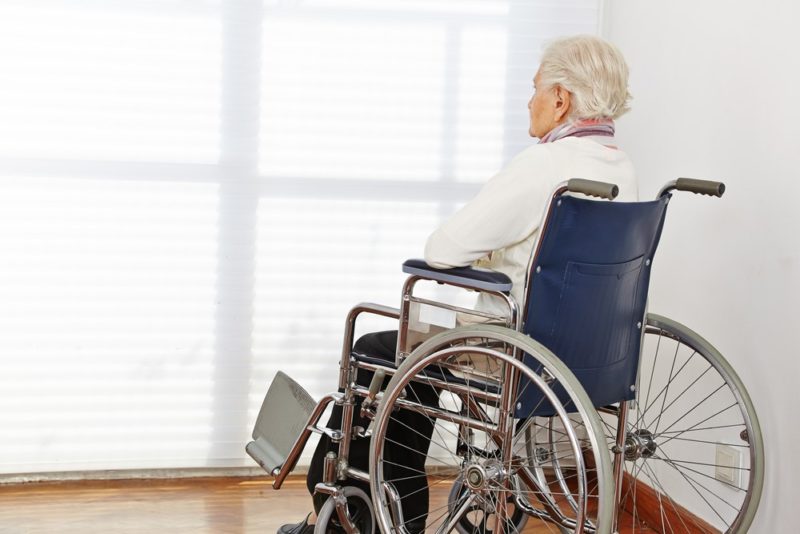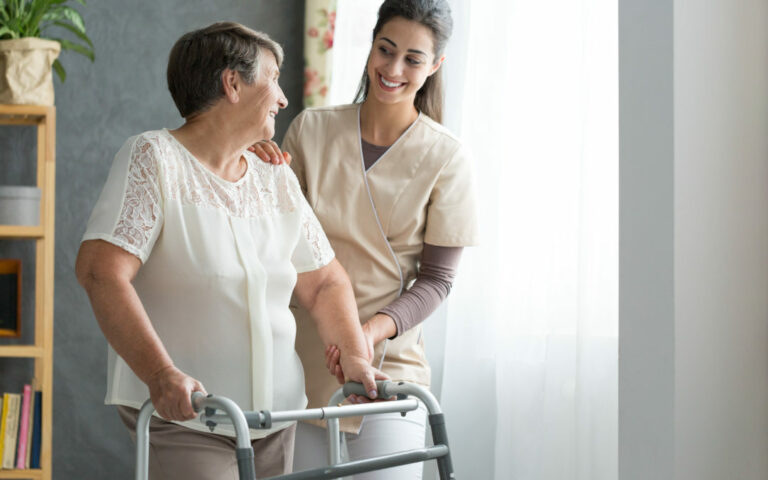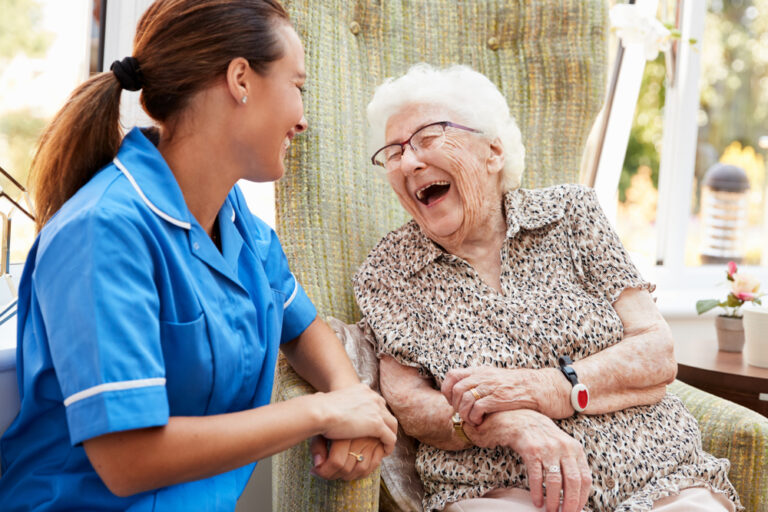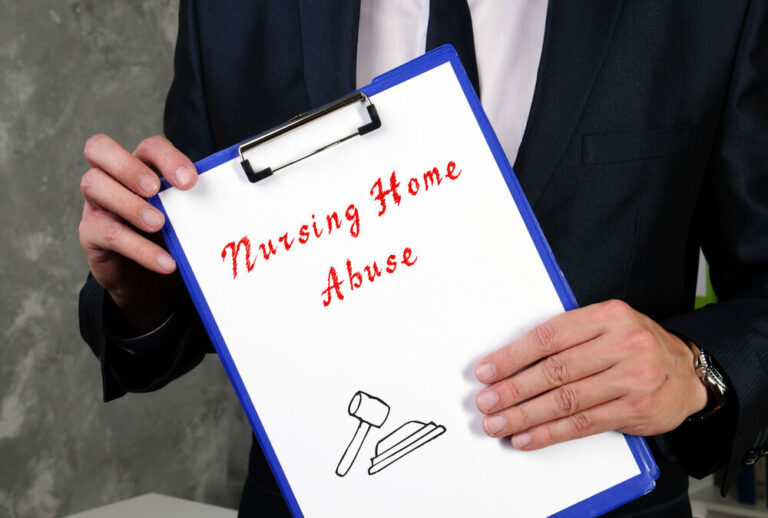Did you know that 2 in 3 nursing home staff commit elder abuse every year?
Whether due to staffing shortages, poor training, or negligent hiring practices, nursing home abuse and neglect are rampant across the United States ‒ and it has only worsened throughout the COVID-19 pandemic.
Nursing home abuse and neglect vary in type and severity ‒ and they’re not limited to nursing homes, either. Elder abuse can range from physical, emotional, and sexual abuse to abandonment, neglect, and financial exploitation. Understanding the warning signs is an essential first step in addressing nursing home or caregiver abuse and negligence.
Do you have an elderly family member who lives in a nursing home or has a caregiver in Savannah, GA, Chatham County, or the surrounding areas? If you find yourself up against negligent or abusive caregivers and long-term care facilities, the attorneys at Lasky Justus Law are here to fight for you and your family.
Contact us today to schedule a consultation with an elder abuse attorney ‒ or read on to learn more.
1. Poor Personal Hygiene
Does your loved one constantly reek of urine, feces, or body odor when visiting with them? Do they frequently experience diaper rash or incontinence?
Poor hygiene is often the result of negligence or inadequate bathing and personal assistance. Filthy clothing and bedding, unwashed hair, and overgrown nails are signs of neglect, as well. Improper or infrequent toileting can also lead to incontinence and skin breakdown.
2. Unexplainable Injuries
Has your loved one mysteriously sustained broken bones or joint dislocations? Do they have excessive or unexplainable bruises, scratches, or bleeding? Are they continually slipping, falling, or getting hurt in the facility?
Incompetent or lack of supervision are forms of elder neglect. It’s also possible that their caregivers are handling, feeding, and transferring them too roughly. Your loved one may even be suffering deliberate physical abuse at the hands of those caring for them.
In addition to physical injuries, pay attention to your loved one’s mobility. If they’re being neglected and confined to their bed or wheelchair for hours on end every day, their mobility can weaken, making them more prone to bedsores, injuries, and falls.
3. Malnourishment & Dehydration
Weight loss can naturally occur in old age or among those undergoing chemotherapy or taking certain appetite-suppressing medications. However, unexplainable or significant weight loss can result from nursing home neglect or inadequate caregiver attention.
Does your family member seem physically weaker than the last time you saw them? Do their energy levels seem lower than usual? Can they only consume a small amount of food at a time? Are they experiencing reduced urine output accompanied by weight loss or low body weight?
Your family member may not be receiving adequate food and fluid intake or support and assistance during feeding times. Signs of malnutrition and dehydration in older adults also include a swollen tongue, cracked lips, bruises, frequent illness, or progressive difficulty with chewing or swallowing.
4. Frequent Infections & Open Wounds
Does your loved one frequently develop bedsores or urinary tract infections? Do they consistently have open or infected wounds?
Individuals confined to beds or wheelchairs for extended periods can develop open sores and UTIs ‒ but these can also result from poor cleaning, sanitation, and toileting assistance on behalf of the nursing home staff.
Diabetic, chronically ill, or patients suffering from compromised immune systems require individualized medical attention and assistance. However, if they aren’t receiving this, the severity and frequency of bedsores, UTIs, and wounds can worsen.
5. Socially Withdrawn, Depressed, or Anxious
If your loved one no longer seems like themselves, this can be a red flag of elder abuse or neglect.
Do they socialize less or seem isolated and withdrawn? Do they no longer wish to participate in activities that once brought them joy and amusement? Do they seem embarrassed or afraid when asking for assistance?
Your family member may not be receiving the care and attention they need when they ask for help ‒ but their caretakers may even be ridiculing, bullying, or threatening them, as well.
Additional Signs of Nursing Home Neglect & Abuse
Unfortunately, the signs of nursing home and caregiver abuse are never-ending. In addition to the five signs previously discussed, you should also pay attention to the following:
- Sleeps a lot or appears more confused, disoriented, or drowsy.
- Torn, stained, or bloody clothing/bedding/undergarments.
- Venereal disease or genital infections.
- Vaginal/anal/breast bruising or bleeding.
- Unusual financial transactions on their credit cards or checking accounts.
- Lost or stolen money or personal items.
- Hovering staff member(s) when you go to visit your loved one in the facility.
- Nursing home staff refuses or delays visitor entry into the facility.
- Signature forgery or phony accounts in the resident’s name.
If you notice any of these signs, contact Lasky Justus Law today. Our elder abuse attorneys will explore your loved one’s unique situation and help you develop the strongest case.
What Should You Do If You Suspect Nursing Home Abuse?
Understanding the signs of nursing home abuse is essential to identifying a problem as early as possible and advocating for the safety and rights of your loved one.
Once you suspect abuse or neglect, talk to your family member and question what’s going on. Comfort them and remind them that they don’t need to be afraid to be open and honest.
Remember: You don’t need proof to report possible nursing home or caregiver abuse and neglect. Once you suspect abuse or neglect, you should contact an elder abuse attorney right away.
Put an End to Nursing Home Neglect & Abuse
Is a family member being abused or neglected in a nursing home? Is their nursing home or caregiver located in Savannah, GA, Chatham County, or the surrounding areas?
Lasky Justus Law is here to defend and support the victims of elder abuse, as well as their families and support networks. With November and December right around the corner, we encourage families to be on the lookout for the signs of nursing home abuse and neglect while their loved ones are visiting home for the holidays.
Don’t hesitate to reach out to our team of elder abuse attorneys for assistance.





